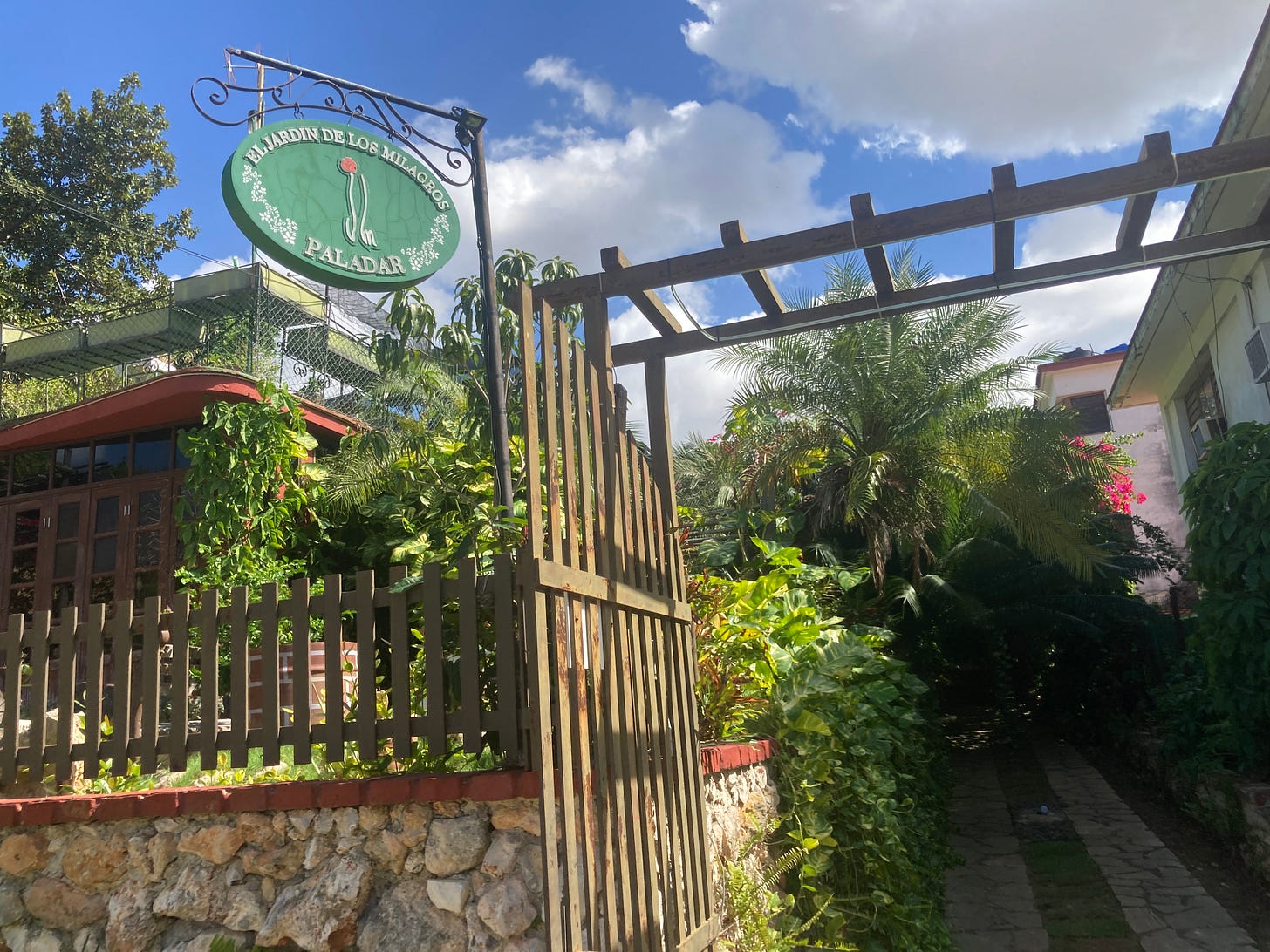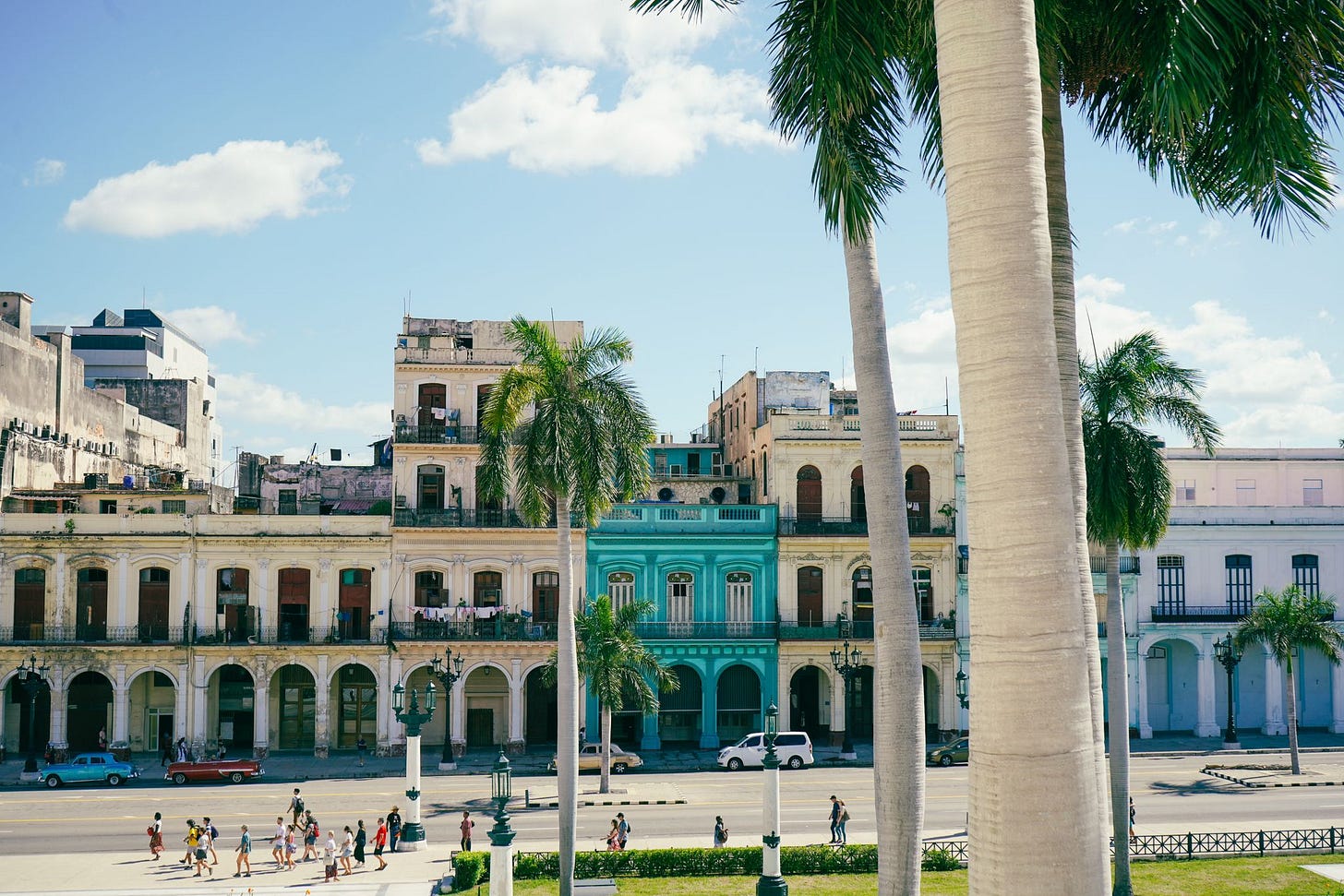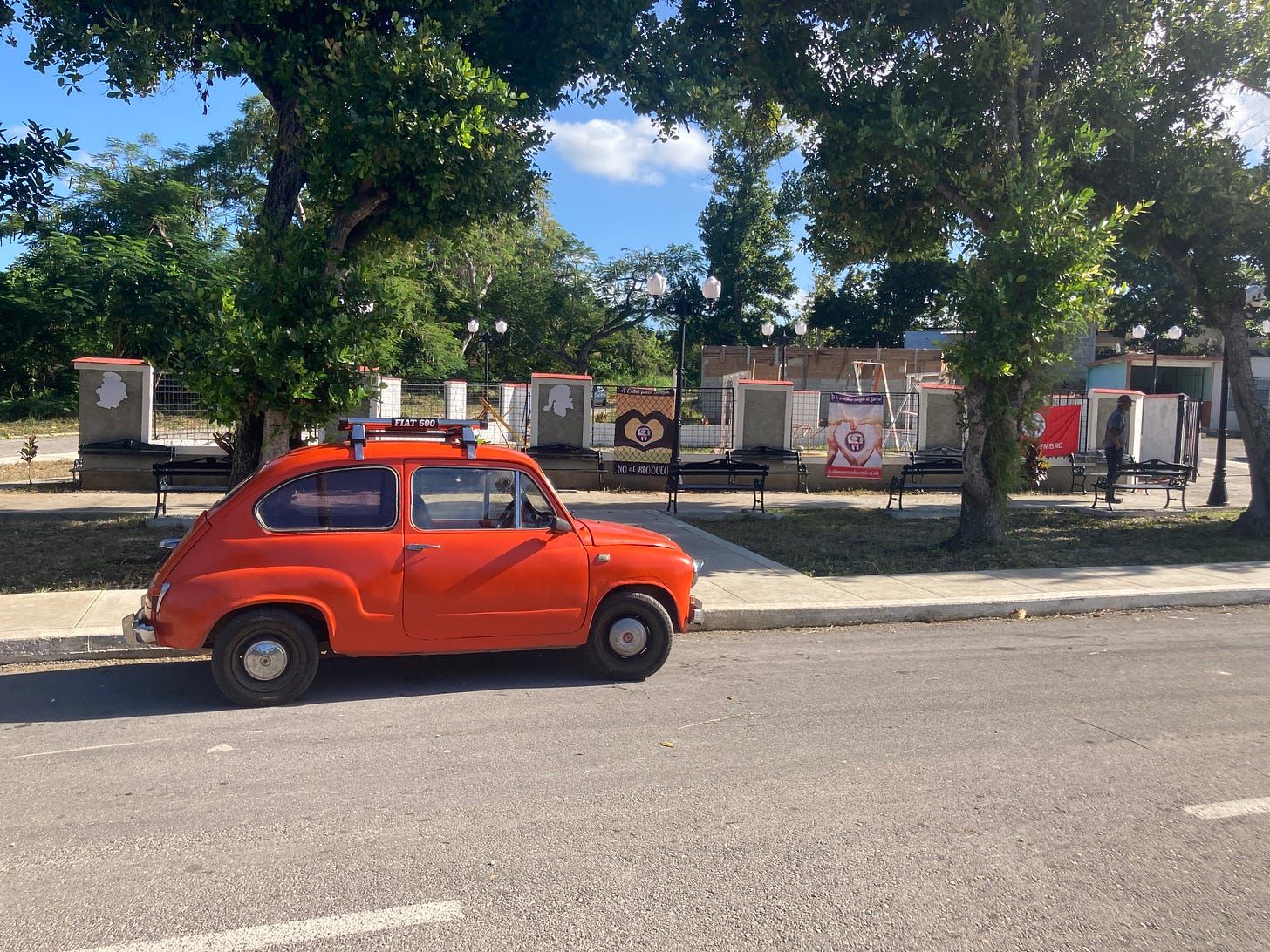End the Embargo of Cuba
It is an unjustifiable coercion that puts the US at odds with the rest of the world
Last month, the United Nations General Assembly voted overwhelmingly in support of ending the US embargo on Cuba for the 31st year in a row. The only countries that voted against it were the US and Israel.
Because of how financially and economically powerful the US is, this unilateral embargo—el bloqueo in Cuba—is quite damaging. It does not just inhibit trade with the US, it makes accessing the global financial system very difficult for Cuba through both direct restrictions and hegemonic soft power. Merchant ships that visit Cuba are banned from docking in the US for 180 days afterwards—which substantially increases the cost of maritime trade—and Cuba cannot import goods composed of more than 10% US-made components.
The blockade has been in place in some form since 1960, shortly after the Cuban Revolution led by Fidel Castro and Che Guevara ousted the US-backed Batista dictatorship. The explicit intention was to immiserate the Cuban people so much that they would revolt out of desperation. The Castro government actually wanted friendly relations with the US, but during the Cold War, a socialist foothold merely 90 miles from Florida would not be tolerated.
While the embargo undoubtedly hurt, substantial aid from the Soviet Union was enough to keep Cuba relatively afloat until the former collapsed in 1991, leading to a brutal decade of hardship in the latter—referred to as the Special Period—only ending when Hugo Chávez and the Bolivarian Revolution allowed for a new source of oil. This was a particularly difficult time for Cuba, which had to deal with these onerous conditions of swiftly diminished access to resources the country had been built to run on. The US also added new measures to the embargo during this period, perhaps intended to strike a killing blow to the government in a time of newfound weakness.

For many years, Cuba was a colony of Spain (and briefly the US) and essentially used as an industrial sugar plantation. Sugar has remained a primary, albeit less central, export (and a necessary component for its rum industry) during Cuba’s post-colonial period, even after the revolution. The Castro government essentially traded it to the Soviet Union for oil. But industrial agriculture requires enormous external inputs—fertilizer, pesticides, fossil fuels—to function. So during the Special Period, Cuban agriculture adapted by adopting and pioneering agroecological methods, especially in urban areas, with diversified cropping systems that are more ecologically sustainable and require substantially fewer resources, which were suddenly much more difficult to access. Cuba’s sugar production has necessarily fallen significantly, but still remains substantial given its economic importance to a country with few alternatives.
Consequently, while Cuba has made progress on food sovereignty, it still imports most of the food it consumes, so it has a long way to go. The government provides a “basic family food basket” in the form of ration booklets, which will keep you from starving but—especially with shortages—are not by themselves enough to thrive on. This is a challenge because of Cuba’s increasing exposure to extreme weather events that can destroy crops along with a blockade that hinders their ability to import both food and the materials for a more comprehensive overhaul of their agricultural system.
The Obama administration relaxed the US blockade of Cuba somewhat, including re-establishing relations, easing travel restrictions, and removing the country from the official “State Sponsors of Terror” list. Then the Trump administration not only reversed this progress but added hundreds of new restrictions. The Biden administration has thus far maintained Trump’s harsher status quo and not reversed any of his Cuba policies despite promises to do so; they have apparently even lied to Congress about it. Combined with the accelerant of the pandemic and resulting global economic pressures, this has resulted in over 400,000 people fleeing the island in just the last two years—a loss of around 4% of the population—and increasing shortages of food and medical supplies.
To see the effects of the embargo firsthand, I recently visited Havana, the capital of Cuba, as part of a Democratic Socialists of America (DSA) delegation. We toured various facilities and met with a number of civil servants and public officials to learn about Cuban society and the embargo in particular (for a more detailed report on our trip, check out Danny Valdes’s Cuba Diaries). Blackouts are common, foods and consumer goods we take for granted in the US are often in short supply, and the concrete-heavy infrastructure is often cracked and crumbling. Many public offices are located in upscale homes seized during the revolution and now in need of repair.
However, what Cuba accomplishes under these circumstances is remarkable. Despite the embargo, it is the fifth-ranked country on the Sustainable Development Index, a measure that combines life expectancy, years of schooling, income, and ecological impact. Cuba’s life expectancy is approximately the same as that of the US with 86% lower income, 83% lower CO2 emissions, and 76% lower material footprint (all per capita). Their literacy rate hovers between 99 and 100%. From the beginning of its socialist experiment, Cuba has emphasized health and education as the cornerstones of its societal well-being.
Unlike the exploitative and expensive hodgepodge we have in the US, Cuba’s renowned healthcare system is universal and highly structured. The pride that Cubans, particularly health workers, take in this system was evident in our conversations with them; we heard repeatedly about the five COVID-19 vaccines they developed. Cubans have a neighborhood doctor who they see regularly (it helps to have the most doctors per capita in the entire world), with many small clinics at the local level followed by hospitals then more specialized centers for when more serious medical care is needed. Out of both design and necessity, they take a holistic view of health that focuses on prevention above treatment, which produces better results and requires less resources. It is easier for them to do this because there are no insurance or pharmaceutical companies looking to profit off of ailing patients, and their society intentionally fosters and guarantees social determinants of health like community and housing. There are supposedly no homeless people in Cuba (I did not see anyone living on the street during our trip).
We also visited the Ministry of Science, Technology, and the Environment (MSTE) and the Ministry of Civil Defense (MCD), which is tasked with coordinating Cuba’s response to natural disasters and epidemics. At the MCD, I was reminded of Cuba’s health system—it is a highly structured organization that focuses heavily on prevention. In a quite literal sense, reducing disaster harm is healthcare. When a hurricane is forecast, they spring into action to move people and resources around to minimize the damage. The type of abandonment we see in the US (e.g. Katrina) is unthinkable in Cuba.
At the MSTE, we heard about Cuba's climate plan, called Tarea Vida (Life Task), which was adopted in 2017. Eschewing carbon reductionism, they focus on five crises: soil, water, pollution, biodiversity, and climate change. Their plans stretch all the way out to 2100, but their goals in the near term are quite modest—e.g. 30% renewable energy by 2030—which is perhaps a reflection of their particularly challenging conditions. After her presentation, I asked the Deputy Minister about the specific effects of the blockade on their efforts. She briefly mentioned the difficulty of securing financing, then—like basically every official we spoke with—pivoted to talking about Cuba’s COVID-19 vaccines. I genuinely admire the messaging discipline, but I was hoping for more specific answers.
Nonetheless, my observations align with my research. Solar panels are sparse in Cuba, especially for a country so sun-soaked. Rain barrels can be seen on most residential roofs, a vital water source. The bus stops are overflowing with people, reflecting a lack of needed transit capacity. Cuba is famous for its classic cars, but during the Special Period, they imported vast quantities of bicycles because of the newfound lack of gasoline. Since then, the number of bicycles in Havana has decreased by an estimated 90% due to a return to car-centric transportation policies and planning. In an effort to chart a different path, Cuban architecture and urbanism expert Julio César Pérez Hernández drafted A Master Plan for 21st Century Havana, a holistic design for revitalizing the capital city for social and ecological well-being with human-centric mobility, green spaces, and polycentric design. Unfortunately, Cuba simply does not have the resources to implement a transformation like this even if it wanted to due to the embargo.
The US justifies el bloqueo by claiming that Cuba is an authoritarian country. It did not seem like one to me, especially coming from a place with such unequal democratic rights and so lacking in positive freedoms that also exerts its will on other countries with impunity (and is facilitating a genocide in Palestine). Whatever the faults of the Cuban government are, they have to be seen in the context of being under constant threat from the US—as Valdes wrote, it should be understood as essentially a wartime government. We even have a military base and torture prison on their island (Guantanamo Bay). The most powerful country in the world has been trying to sabotage Cuba in myriad overt and covert ways for over 60 years now, and it is hard to take seriously the idea that the Cuban project is a failure when the US works so hard to strangle it.
Right now, it is difficult to totally parse out how much of Cuba’s failures are due to the embargo and its successes to socialism. But the people of Cuba, and the rest of the world looking for examples of how to build more just and sustainable societies, deserve the chance to find out. On the heels of yet another underwhelming UN climate summit amidst still-increasing greenhouse gas emissions and ecological degradation, the world’s top producer of both fossil fuels and weapons can take a lesson from its island neighbor and chart a path towards cooperation and humanity instead. The Biden administration should start by ending the embargo.




